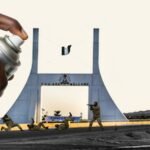Nigeria, Africa’s top oil producer, has decided that the time for energy chaos is over. In a move as ambitious as it is overdue, Abuja is spearheading a continent-wide initiative to unify oil regulations across Africa — and the ripple effects could transform not just how Africa drills, refines, and trades its black gold, but how it speaks with the rest of the world.
The new effort, being coordinated under the African Petroleum Regulators Forum (AFRIPERF), seeks to harmonize everything from environmental standards and licensing procedures to cross-border energy trading rules. It is a bid to replace a patchwork of national regulations with something more coherent, transparent, and investment-friendly. The stakes are enormous: Africa holds around 7–8% of the world’s proven oil reserves, and its gas reserves are even more significant — yet much of this potential remains underdeveloped due to regulatory uncertainty and investor skepticism.
The Nigerian-led proposal has three major components. First, the standardization of technical and safety requirements for oil exploration and production across the continent, which is expected to cut costs for companies operating in multiple jurisdictions. Second, the alignment of emissions and environmental guidelines with global standards — a nod to both ESG-conscious investors and climate-conscious critics. Third, and most politically significant, the creation of a framework for cross-border oil and gas infrastructure projects, from pipelines to refineries, that would be governed by a single set of rules.
This is, in many ways, Nigeria attempting to turn its soft power into hard leverage. The country has watched as OPEC+ deals were negotiated elsewhere and as foreign majors dictated terms in deepwater exploration. By spearheading AFRIPERF, Nigeria is positioning itself as the regulatory linchpin of Africa’s hydrocarbon economy. Officials argue that the move is less about centralization and more about creating a level playing field that encourages competition and investment.
Of course, not everyone is convinced. Some African producers worry that Nigeria’s outsized influence could turn this into a de facto Abuja-first framework, leaving smaller producers with limited say. Angola and Algeria, Africa’s other oil heavyweights, have expressed cautious support but are pushing for rotating leadership and a dispute-resolution mechanism to avoid political domination.
Meanwhile, international oil companies are watching closely. Many have lobbied for years for exactly this kind of harmonization, complaining that contradictory tax codes, overlapping regulations, and opaque licensing rounds have slowed projects to a crawl. The hope is that a unified regulatory regime will allow them to scale projects faster — particularly as Europe seeks to replace Russian gas and Asia hunts for new energy sources to power its growth.
Environmental groups have raised red flags, warning that harmonization could become a euphemism for regulatory dilution if the process is not transparent. “Streamlining is not the same thing as weakening,” one activist told African energy reporters. “But without clear oversight, there is always the risk that countries will settle for the lowest common denominator.”
Nigeria appears keen to avoid that perception. The Ministry of Petroleum Resources has hinted that the new framework will actually raise the bar, requiring member states to publish real-time data on emissions, production volumes, and royalties. This would be a dramatic shift for an industry often accused of secrecy.
Geopolitically, this initiative comes at a time when Africa’s bargaining power on energy is rising. Europe’s dash for gas after the Ukraine war has turned countries like Nigeria, Senegal, and Mozambique into critical suppliers. A harmonized African energy market could, in theory, give the continent OPEC-style clout — a single voice that can negotiate prices, investment guarantees, and technology transfer on its own terms.
But the road ahead is fraught. Crafting a pan-African regulatory framework is no small task when dealing with over a dozen oil-producing nations, each with its own vested interests, fiscal pressures, and domestic politics. The first pilot phase will reportedly involve just six countries — Nigeria, Ghana, Angola, Senegal, Uganda, and Mozambique — with others invited to join as the model proves itself.
If Nigeria succeeds, AFRIPERF could mark a turning point for African energy, shifting the narrative from a continent dependent on foreign capital and expertise to one writing its own rules of engagement. But if it fails — bogged down in politics, bureaucracy, or accusations of Nigerian dominance — it risks becoming just another acronym in the long list of pan-African dreams that never quite made it.
Either way, this crude awakening has already begun, and the world’s energy markets are paying attention.











